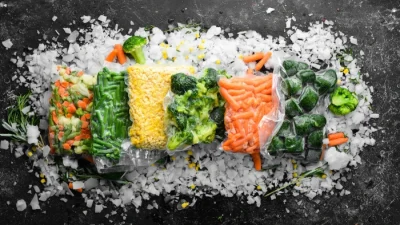How to Create a Bodybuilding Diet
Warning: Undefined variable $post in /home/dietofli/public_html/wp-content/plugins/code-snippets/php/snippet-ops.php(584) : eval()'d code on line 3
Warning: Attempt to read property "ID" on null in /home/dietofli/public_html/wp-content/plugins/code-snippets/php/snippet-ops.php(584) : eval()'d code on line 3
The estimated reading time is 2 minutes
Warning: Undefined variable $post in /home/dietofli/public_html/wp-content/plugins/oxygen/component-framework/components/classes/code-block.class.php(115) : eval()'d code on line 3
Warning: Attempt to read property "ID" on null in /home/dietofli/public_html/wp-content/plugins/oxygen/component-framework/components/classes/code-block.class.php(115) : eval()'d code on line 3
Introduction
Diet plays a pretty huge part of healing, growth and overall robustness and except it, your physique won’t settle on any strong muscle volume. Consequently, if you aspire to be a real bodybuilder, you’re working to improve your lifestyle plus begin a muscle construction meal program. Don’t bother, it’s not as difficult as it seems. We’ll provide you with the full analysis on how to manage your dietary requirements to develop a muscular build.
Determining Calories for your Bodybuilding Diet
Bodybuilding food is continually evolving due to the development of your tissue volume as well as the dynamic pressure in your exercises.
If you develop your tissue volume or the moment you spend power training, you need to consume more. If you drop tissue plus if you reduce the power level of your exercise, you require to consume less. Henceforth how do you understand if you’re making or dropping lean tissue mass? Of course, you will measure. You should watch your weight to recognize if your aim to build lean tissue is producing an improvement in body weight. (1)
Best Foods For Muscle Building
Here is a listing of the greatest bodybuilding diets including their macronutrient outlines. With the information below you can develop healthy bodybuilding nutrition depending on your own distinct goals, getting lean, mass building, or just basic maintenance of your diet. Read on to know the lunch ideas for bodybuilding. (2)
You can choose your meal from the lists below:
Dairy & Egg Products. (per ounce, 28g)
| Food | Calories | Protein(g) | Carbohydrates(g) | Fat(g) |
| Egg (whole-1 large) | 74 | 6.0 | trace | 5.0 |
| Egg (substitute-50ml) | 53 | 8.0 | trace | 2.0 |
| Egg (white-1 large) | 18.0 | 4.0 | trace | trace |
| Low-fat buttermilk (250ml) | 98.0 | 8.0 | 12 | 2.0 |
| Ricotta cheese (partly skimmed) | 38.3 | 3.13 | 1.3 | 2.24 |
| Yogurt (plain fat-free) | 15.8 | 1.6 | 2.1 | trace |
| Cheddar Cheese (reduced fat) | 54.8 | 7.8 | 1.1 | 2.2 |
| Swiss Cheese (reduced fat) | 56.0 | 8.9 | 1.1 | 1.1 |
| Skimmed Milk(250ml) | 86 | 8.0 | 12 | trace |
| Cottage Cheese (2%) | 25.0 | 4.0 | 1.0 | 1 |
Legumes (per ounce, 28g)
| Food | Calories | Protein(g) | Carbohydrates(g) | Fat(g) |
| Lima Beans (baby) | 33.8 | 2.0 | 6.1 | trace |
| Black Beans | 36.8 | 2.3 | 6.5 | trace |
| Chickpeas | 46.9 | 2.4 | 8.0 | 0.7 |
| Kidney beans | 34 | 2.4 | 8.0 | trace |
| Lentils (cooked) | 32 | 2.5 | 5.6 | trace |
| Tofu (raw) | 45 | 4.9 | 1.1 | 2.5 |
| Soya beans (cooked) | 79 | 6.8 | 6.2 | 3.1 |
| Split Peas (cooked) | 32.4 | 2.2 | 5.8 | trace |
Nuts Seeds and Oils. (per ounce, 28g)
| Food | Calories | Protein(g) | Carbohydrates(g) | Fat(g) |
| Almonds | 183 | 6.7 | 6.7 | 15.6 |
| Almond Butter (1 tbsp) | 101 | 2.5 | 3.5 | 9.5 |
| Canola oil (1 tbsp) | 124 | 0.0 | 0.0 | 14 |
| Flaxseeds (1 tbsp) | 59 | 2.3 | 4.0 | 4.0 |
| Olive Oil (1 tbsp) | 119 | 0.0 | 0.0 | 14 |
| Peanut butter | 96 | 4.0 | 3.0 | 8.5 |
| Peanuts (dry roasted) | 186 | 7.8 | 6.7 | 15.6 |
| Walnuts | 207 | 4.5 | 4.5 | 21.2 |














